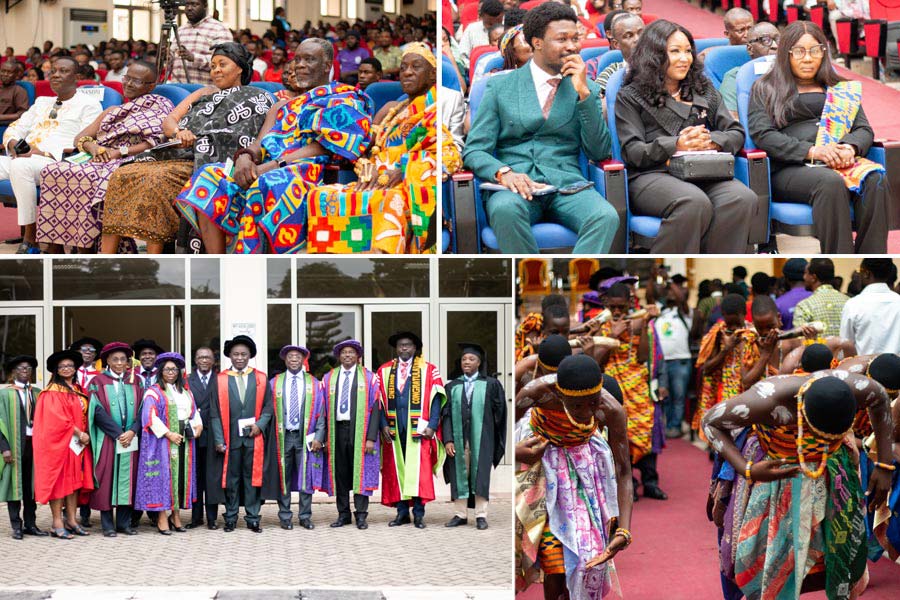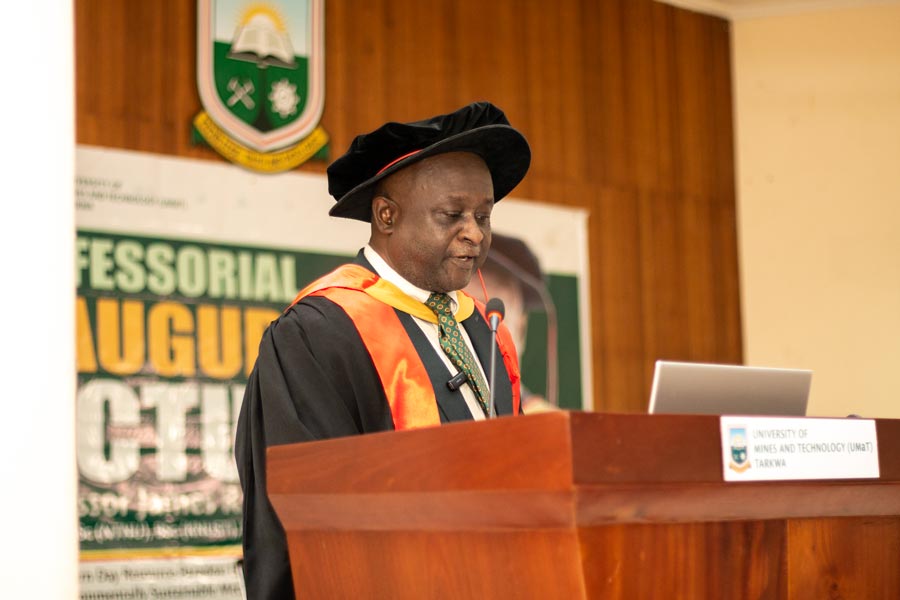Professor James R. Dankwah, a distinguished academic in metallurgical and materials engineering held his inaugural lecture on the topic, “Waste Plastics, a Modern-Day Resource Paradox: Leveraging its Positive Attributes for an Environmentally Sustainable Metals Production” on Wednesday, 30th July 2025 at the UMaT Auditorium.
In his presentation, Professor Dankwah addressed two pressing global challenges thus plastic waste and sustainable metals production by reimagining plastics but as vital resources for industrial transformation not as environmental pollutants.
Professor Dankwah highlighted the alarming growth of plastic production, which has increased from 2 million tonnes in 1950 to over 400 million tonnes in 2022, with only 9 percent recycled. The rest, he explained, is either incinerated, landfilled, or discarded illegally, worsening environmental degradation.
“Plastics are paradoxical,” Prof Dankwah remarked. “They are maligned as waste, yet they contain carbon and hydrogen, two of the most powerful reductants for producing metals from ores. If re-channelled effectively, they can clean the environment while driving more sustainable industry,” he added.
Central to his research is Polymer Reduction Technology, an innovative system that converts waste plastics such as sachet wrappers, “takeaway” food containers, tyres, and other mixed household plastics into reductants and energy sources for metal production. Unlike conventional metallurgical coke, this method delivers faster reaction rates, lower carbon footprints, and cleaner metals.
The process is highly versatile. Plastics can be used alone, combined with coke, or blended with biomass such as coconut shells or palm kernel husks. Across all approaches, Prof Dankwah’s trials showed improved metal recovery and reduced CO₂ emissions.
According to Professor Dankwah, he has successfully applied this technology to ores from Ghana specifically in Oppon Mansi, Sheini, Pudo, Akpafu Todzi, and Akokorowa as well as deposits in Nigeria, Liberia, Sierra Leone, Cameroon, and China. The results consistently yielded premium-grade metallic iron, confirming that polymer-based reductants can serve as viable substitutes for coke.
Prof Dankwah revealed that in another study, polystyrene (PS) from disposable food containers achieved complete reduction of FeO within minutes, compared to coke, which only reached about 52 percent reduction in the same timeframe. The metals produced using plastics also had lower sulphur content, a key advantage in steelmaking. He added that similarly, trials using HDPE from sachet water plastics blended with coconut shells demonstrated higher reduction efficiency and lower CO₂ emissions, underscoring both the technical and environmental benefits of the process.
Prof Dankwah’s work extends beyond iron production. It also covers steelmaking, ferrosilicon production, bauxite beneficiation energy recovery and battery waste recycling.
Prof Dankwah emphasised how Ghana can integrate this technology into its steel value chain. Given that many local ores are low to medium-grade, he recommended the Rotary Hearth Furnace–Electric Arc Furnace (RHF–EAF) route as the most suitable pathway. This, he explained, would maximise domestic resources, reduce reliance on scrap imports, and promote a cleaner, more self-sufficient steel industry.
Professor James R. Dankwah, the immediate past Head of the Minerals Engineering Department at UMaT, has authored over a hundred publications and brings extensive consultancy experience across Africa and beyond. He is also a co-founder of the African Centre for Sustainable Materials Research and Technology (ACeSMaRT). Through the supervision of numerous undergraduate and postgraduate theses, he continues to make significant contributions to Ghana’s scientific advancement and industrial development.












